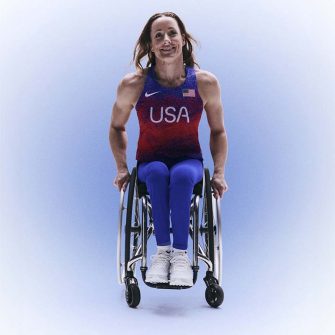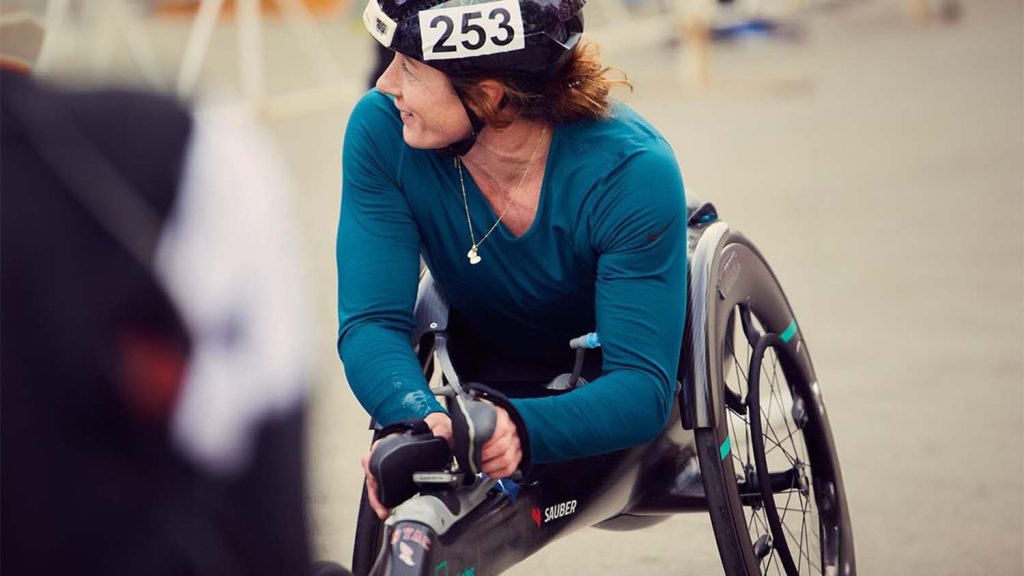8-time Paralympic gold medallist Tatyana McFadden is an American record holder, but her sports equipment is racing to catch-up with her. Collaborating with CRP USA has finally provided her with durable gloves needed for the track
At her first Paralympic Games in 2004, elite athlete Tatyana McFadden raced in the T54 category on the Athens track using a pair of basic harness gloves during her wheelchair events.

“They were shaped like thumbs and made of heavy-duty fabric with rubber padding,” she recalls. “Their softness made me feel the impact every time I hit the hand ring.”
By the time the 2008 Games in Beijing rolled round, McFadden was making her own gloves by melting plastic beads in boiling water and moulding the softened polymer to her hands, but they still weren’t perfect: they wore down over time and melted in the summer heat.
In 2015, additive manufacturing experts CRP USA collaborated with McFadden to create gloves that were bespoke, stronger and more durable than any used before.
Crucially for wheelchair racing, the gloves also needed to be light, stiff and resistant to the weather.
In time for the 2024 Paralympic Games in Paris, McFadden gloves have transformed once more, featuring a paddle-like design, with Velcro straps across the back to provide a snug fit, and wide black padding across the front to absorb the friction caused by the intensity of wheelchair racing.
“I was so impressed by how light and durable they were,” says the 8-time gold medallist. “My hands felt so light. When I first put my hands into the glove, it was so smooth.”
With CRP USA, McFadden is continuing to collaborate to enhance the gloves right up until the first race at the 2024 Games.
“My gloves have cracked in the past. My strokes produce a lot of force when I hit the hand ring, and my previous gloves lasted less than a year. I also wanted a better way to add rubber to the hand rings. The CRP USA team listened to my needs and managed to satisfy them in the best way possible,” says McFadden.
CRP USA used SLS 3D printing technology and Windform XT 2.0 material to manufacture the designs, with rubber trimmed to size and bonded to the gloves using a structural adhesive.
Carbon fibre-filled Windform XT 2.0, a highly durable material, extended the lifespan of the gloves and ensured comfort and shock absorption. Its melting point of nearly 180°C and heat deflection temperature of over 170°C ensured that the high friction created during wheelchair racing would not affect the gloves.
The CRP USA team inserted internal structuring to maintain the strength of the gloves at a 50% weight reduction from traditional harness gloves, and giving McFadden the edge for a tilt at her ninth Gold in Paris.






